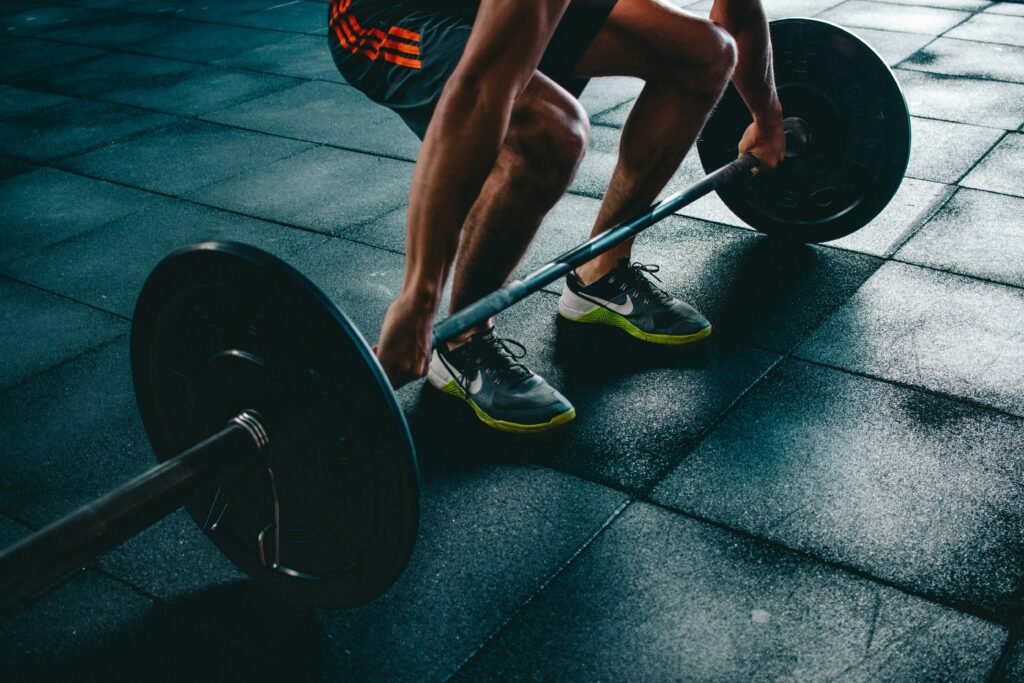What Is A Good Level Of Fitness?
Have you ever wondered what a good level of fitness actually looks like for you? Let’s break it down and explore how you can determine the right level of fitness for your body and goals.
Understanding Fitness Levels
When it comes to your fitness level, it’s important to understand that it can vary greatly from person to person. What might be considered a good level of fitness for one individual may not be the same for someone else. Factors such as age, gender, genetics, and overall health all play a role in determining what constitutes a good level of fitness for you.
Physical Fitness Components
Physical fitness is typically broken down into five main components: cardiovascular endurance, muscular strength, muscular endurance, flexibility, and body composition. A good level of fitness would involve having a balance of these components, rather than excelling in just one area.

Setting Realistic Goals
Setting realistic fitness goals is key to achieving and maintaining a good level of fitness. Whether your goal is to run a marathon, gain muscle, or simply improve your overall health, having a clear idea of what you want to achieve will help you stay motivated and on track.
Assessing Your Current Fitness Level
Before you determine what a good level of fitness looks like for you, it’s important to assess your current fitness level. This can be done through various fitness tests and assessments that measure your strength, endurance, flexibility, and overall health. Consulting with a personal trainer or healthcare professional can also help you determine where you currently stand in terms of fitness.

Balancing Cardiovascular and Strength Training
A good level of fitness involves a balance of cardiovascular endurance and muscular strength. Incorporating both cardio and strength training into your workout routine will help you improve your overall fitness level. Aim for at least 150 minutes of moderate-intensity cardio per week, along with two to three days of strength training.
Importance of Flexibility
Flexibility is often an overlooked component of fitness, but it plays a crucial role in overall health and function. Good flexibility can help prevent injuries, improve posture, and enhance athletic performance. Incorporating stretching exercises into your routine can help improve your flexibility and overall fitness level.

Monitoring Body Composition
Body composition refers to the ratio of muscle, fat, and other tissues in your body. A good level of fitness typically involves a healthy body composition, with a lower body fat percentage and a higher muscle mass. Monitoring your body composition through methods such as body fat caliper measurements or DEXA scans can help you track your progress and make adjustments to your fitness routine as needed.
Healthy Eating Habits
Nutrition plays a significant role in achieving and maintaining a good level of fitness. Eating a balanced diet that is rich in whole foods, fruits, vegetables, lean proteins, and healthy fats can help fuel your workouts and support your overall health. Avoiding processed foods, sugary drinks, and excessive amounts of alcohol can also contribute to improved fitness levels.
Benefits of Regular Exercise
Regular exercise not only helps improve your fitness level, but also offers a wide range of health benefits. From reducing the risk of chronic diseases such as heart disease and diabetes to boosting mood and mental health, staying active can have a positive impact on all areas of your life. Aim for at least 150 minutes of moderate-intensity exercise per week to reap the full benefits of regular physical activity.
Staying Consistent
Consistency is key when it comes to achieving and maintaining a good level of fitness. Instead of focusing on quick fixes or short-term goals, aim to create a sustainable exercise routine that you enjoy and can stick with long-term. Finding activities that you love, whether it’s swimming, yoga, or weightlifting, can help you stay motivated and consistent in your fitness journey.
Listening to Your Body
One of the most important aspects of maintaining a good level of fitness is listening to your body. Pay attention to how you feel during and after workouts, and adjust your routine accordingly. Rest days are just as important as workout days, as they allow your body to recover and prevent burnout or injury. Trusting your body and giving it the care and rest it needs will help you achieve optimal fitness levels in the long run.
Seeking Professional Guidance
If you’re unsure about what constitutes a good level of fitness for you, don’t hesitate to seek guidance from a fitness professional. Personal trainers, nutritionists, and healthcare providers can help you assess your current fitness level, set realistic goals, and create a personalized exercise and nutrition plan to help you reach your full potential. Investing in your health and well-being with professional support can make a significant difference in achieving and maintaining a good level of fitness.
In conclusion, achieving a good level of fitness is a personalized journey that involves balance, consistency, and self-awareness. By setting realistic goals, monitoring your progress, and seeking professional guidance when needed, you can reach your full fitness potential and enjoy the many benefits that come with a healthy, active lifestyle. Remember, your fitness journey is unique to you, so listen to your body, stay committed, and enjoy the process of becoming the best version of yourself.